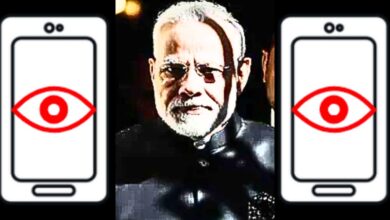Why Does Our Government Want Our Kids To Die?
The world needs to acknowledge what a year 2020 has been and still will be! The year started with COVID-19 which is still on the rise, paralyzing millions of people around the globe in various factors. The human population faced a lot in these past few months and global leaders have had to make serious decisions to protect the people. Systems have seen multiple changes with lockdown and social distancing measures in place, causing a major shift towards digital and online technologies. The education system is one of them. What started out as a short break from their exhausting lives is turning out to be exceedingly stressful for their futures. Especially students nearing the end of one phase of their educational ladder have had to be stuck in the middle with nothing to do but wait for an answer. Examinations that have always decided the future of the students were being questioned for their necessity. Multiple requests were put forth to postpone the entrance exams which were scheduled for September 2020. But all this went to vain as the Education Ministry announced that the infamous JEE (Main) /NEET exams cannot be postponed for this year under any circumstances.

More than just non-ideal circumstances:
India is not free from COVID-19. Especially at a stage when there are rising cases in the country and when the lockdown measures have been lifted, people are being subjected to a higher risk of contracting the virus. With very few safety measures being followed by the general public, the probability inches higher and higher. Conducting examinations is the last thing that can be done without proper facilities in place. It is a huge gamble that students and their families have to take amidst a pandemic. Assurances from the National Testing Agency (NTA, responsible for conducting these exams, that precautionary measures will be taken is not suffice. Lives of students cannot be put at risk, in any condition. To add more to the crisis at hand, North India is being flooded, thanks to nature. All these scenarios have been intensive and pushing the students into a state of despair regarding their future. NTA has released the dates for the JEE (Main) examination [September 1 -6] and for the NEET UG examination [September 13].
Candidates and aspirants of these entrance examinations, who have been faced with this critical issue, are planning to protest against the Centre’s decision, led by the All India Student Association (AISA) and Student Federation of India (SFI). An offline examination is very dangerous, given the present conditions and students are being put into a dilemma using ‘for their better futures’ as the threatening yet compelling factor. Many aspirants have put forth a request to postpone and not cancel the exams.
Garnering political support:
Political leaders and party members are voicing out their views with respect to the Centre’s decision to consider the student’s points of view. Deference or even cancellation of the examinations were given out as suggestions by many of these leaders. Despite the woes of the students, the cries of their parents are even more justifiable. The government has a choice now. The ball is in their court. It is really terrifying to think from a student’s perspective. They are being asked to choose between their health and their so-called future. Proper planning should have been done before taking a decision like this.
And this is definitely not the only solution the Centre could have thought of. Ever since the pandemic gained pace, people have been crunching and squeezing their minds to think of better solutions or ways to revive or even save their crashing economies. Multiple ideas and creativity sparked leading to new innovations in technologies and general systems of life. Almost everybody in the world was able to appreciate the existence of digital technologies that aided them to keep moving ahead during this pandemic. Even students. Online classes and examinations have become very familiar terms to each student, parent and teacher trying to keep up with their syllabus.
 The tradition of the education system:
The tradition of the education system:
Indian education systems are mostly based on face-to-face teaching and classroom-based learning methods in comparison to the online system. Due to the lack of such digital facilities in many schools and colleges, several hindrances were caused in keeping the education going. Students are not able to afford the means to online education and schools are not in a position to provide them with those materials. This is the effect of improper organisation and planning on part of the government. A lack of fund allocation and resource provision to educational institutions, lack of experienced or trained faculties, etc. led to the current scenario of having to fall back to offline methods. This has worked greatly in the favour of the government, with NCERT’s latest survey on students’ accessibility to technology coming up with moderately bad numbers, with 27% of the 34,000-participant survey having no smartphone or laptop access to online classes, and 36% of them utilizing books on hand to keep up with the syllabus.
If the examinations are to be conducted offline, it is not only the students who are at risk. Monitoring faculty or invigilators, workers, etc. are also equally susceptible. What else can be done? Let’s look at what the Centre or the government could have or still can resort to, with proper planning in place. Any method or process or technique has an alternative. Similarly, conducting an exam is not the only way to test a student’s knowledge. This can even prove to be ineffective ways of assessment in the case of at-home online examinations. Possible alternatives to the general examinations that can provide a better assessment of the student’s understanding are:
- A prolonged, open-book examination where students are given access to any available resources in order to answer the questions at hand.
- Designing questions for the exams in such a way that it provokes the student to think deeper and delve more into the subject.
- Collaborative testing can be done where students can figure out the solutions as a team. Here each student can build or contribute to the other to produce a valid answer.
- Presentations or summaries can be provided by the students based on a topic or a subject that is to be tested.
- Small Quizzes and assessments can be conducted instead of a huge final examination.
And many more..
Adaptation is necessary, especially in situations of crisis like the one we currently are in. Therefore, it is highly recommended and requested of the government to kindly not add on to the stress of the students but to ease them out. A bright future is expected for every single child, teenager or adult pursuing their education. But, the lives of these young minds are even more essential factors in their prosperous futures. It is high time the government considers the pleas of students and come to a more sensible and a more plausible conclusion.




